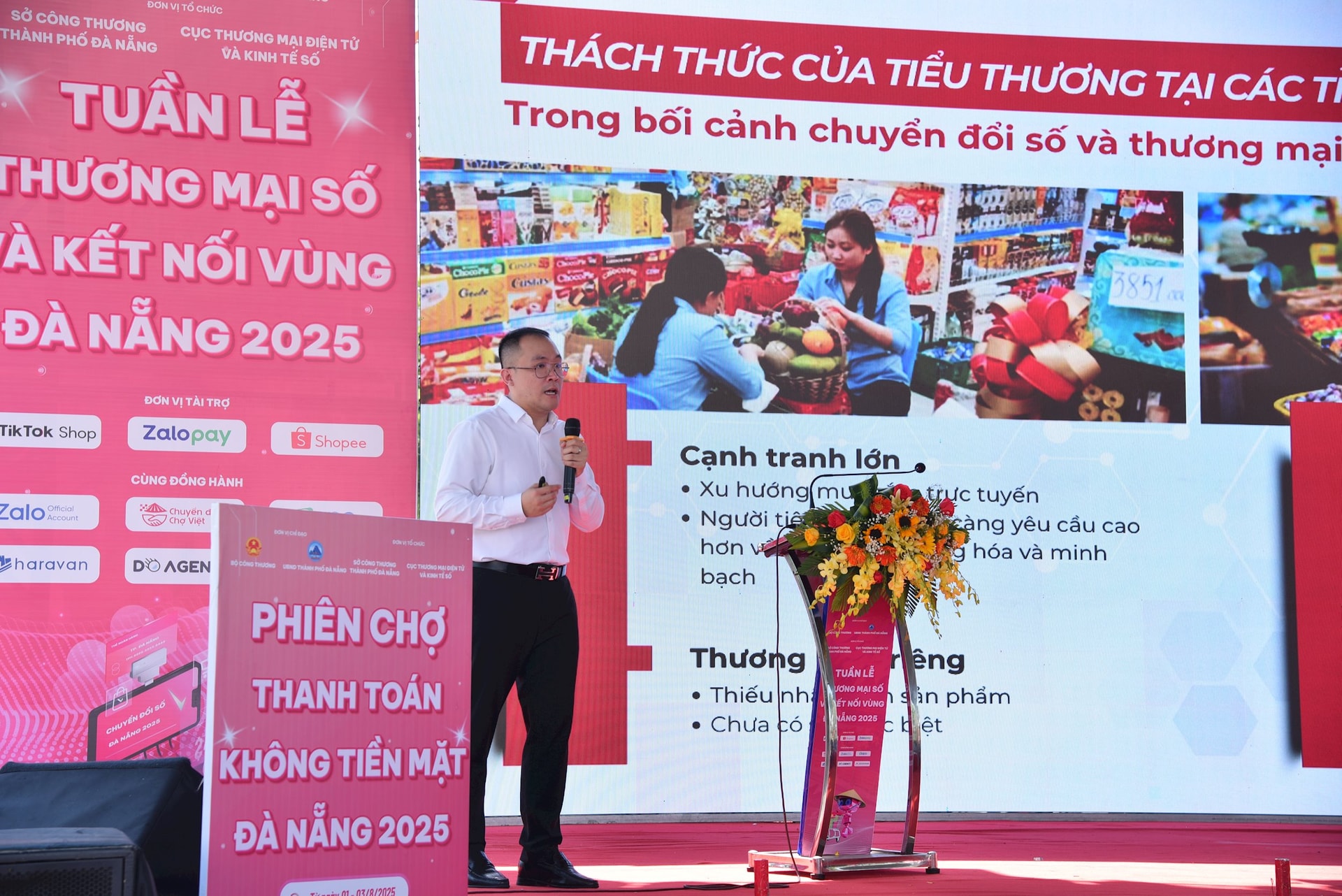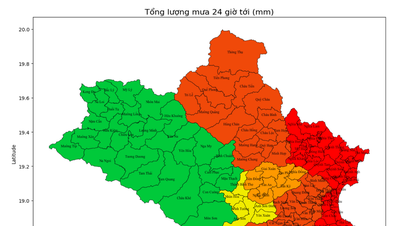
Driving innovation in the retail industry
Mr. Nguyen Huu Tuan, Director of the Center for E-commerce and Digital Technology Development, Department of E-commerce and Digital Economy ( Ministry of Industry and Trade ), said that the strong development of technology, especially artificial intelligence (AI), is creating new trends in e-commerce.
However, for sustainable development, e-commerce needs to be based on three pillars: government - people - businesses. The State must complete infrastructure and legal corridors, people must become aware "digital consumers", and businesses must proactively invest in technology and improve services. Currently, the Ministry of Industry and Trade is consulting on the development of the Law on E-commerce (amended), expected to be submitted to the National Assembly in October 2025.
“At the current rate, Vietnam can completely increase the proportion of retail e-commerce from 10% to 20% by 2030, approaching the world average of 19-21%,” Mr. Tuan affirmed.
In Da Nang, in recent times, the city has continuously made efforts to improve the business environment, supporting businesses to apply e-commerce, especially in the retail sector with more than 500 supermarkets, shopping malls, convenience store chains and 240 markets of all kinds.
This is an important foundation to help the business community, business households and small traders develop effectively, contributing positively to the city's economy.
However, for the retail industry to develop sustainably in the context of integration and fierce competition, it requires the cooperation of management agencies, industry associations, enterprises, cooperatives and small traders.
.jpg)
According to Deputy Director of the Department of Industry and Trade Nguyen Van Tru, Da Nang identified promoting the application of e-commerce in retail as a key task to realize the goal of building a smart, modern and livable city.
In particular, after the expansion of administrative boundaries, the need to apply digital technology has become more urgent to adapt to new consumption trends, optimize goods distribution and effectively connect manufacturers, retailers and consumers.
In the first 8 months of 2025, the city's total retail sales of goods and consumer service revenue is estimated at more than 168 trillion VND, up 24% over the same period in 2024; retail sales of goods alone are nearly 92 trillion VND, up 16.4%.
Revenue from supermarkets and shopping malls reached nearly VND8 trillion, up 16.9%. Commercial infrastructure has developed strongly with a system of supermarkets, shopping malls, convenience stores and traditional markets, meeting the increasingly diverse needs of residents and tourists.

What solutions for Da Nang to develop e-commerce?
From a management perspective, Lieutenant Colonel Tran Nhat Tri, Deputy Head of the Economic Security Department, Da Nang City Police, said that along with the rapid development of e-commerce, from the beginning of 2024 to now, the City Police have discovered 29 cases related to the trading of smuggled and counterfeit goods through e-commerce platforms and social networks.
The reason is that some regulations on e-commerce and taxes are not yet strict enough to keep up with the rapid development of e-commerce; COD (cash on delivery) payments and anonymous transactions are difficult to control, some businesses deliberately violate, while consumers lack the skills to identify risks. In addition, the monitoring capacity of management agencies is also limited.
To overcome this, the police force recommends strengthening inspection and coordination between functional agencies from the central to local levels. At the same time, promoting the dissemination of safe shopping skills, encouraging genuine businesses to participate; and referring to international experience to improve management effectiveness.
At the same time, the city needs to apply big data, blockchain, and QR codes in management, increase international cooperation, and build a healthy consumer culture.
Mr. Nguyen Huu Tuan proposed that Da Nang should develop e-commerce platforms by creating online stores on large and local e-commerce platforms; investing in logistics technology and electronic payments. Focus on promoting online payments through e-wallets and banking applications, and improving transaction security to create trust for users.
In addition, it is necessary to optimize last-mile delivery and develop door-to-door delivery with the "Click & Collect" or BOPIS model; support marketing costs, and create separate promotional programs for local customers.
“The city needs to focus on improving consumer experience and organizing regional connectivity events. At the same time, apply new technology, use AI to suggest products and optimize business strategies, apply virtual reality (AR) to create unique shopping experiences. In addition, strengthen cooperation to simplify procedures and protect consumers, promote cross-border e-commerce; provide financial support and create a startup environment for technology startups in the e-commerce field,” Mr. Tuan shared.
From a business perspective, Ms. Vu Xuan Linh, Director of Strategic Partnerships at Sea Limited Group (Shopee), said that after 10 years of presence in Vietnam, Shopee has accompanied the boom in domestic e-commerce, especially supporting micro, small and medium enterprises to optimize operations, access the market and increase competitiveness.
Da Nang is considered the hub connecting the South Central region in Shopee’s regional connectivity vision. Local businesses can take advantage of initiatives such as “provincial booths”, digital capacity training programs, and online exports to expand the market not only domestically but also regionally.
Source: https://baodanang.vn/da-nang-tim-kiem-giai-phap-phat-trien-ben-vung-nganh-ban-le-3303580.html







![[Photo] Prime Minister Pham Minh Chinh attends the groundbreaking ceremony of two key projects in Hai Phong city](https://vphoto.vietnam.vn/thumb/1200x675/vietnam/resource/IMAGE/2025/9/27/6adba56d5d94403093a074ac6496ec9d)

































































































Comment (0)